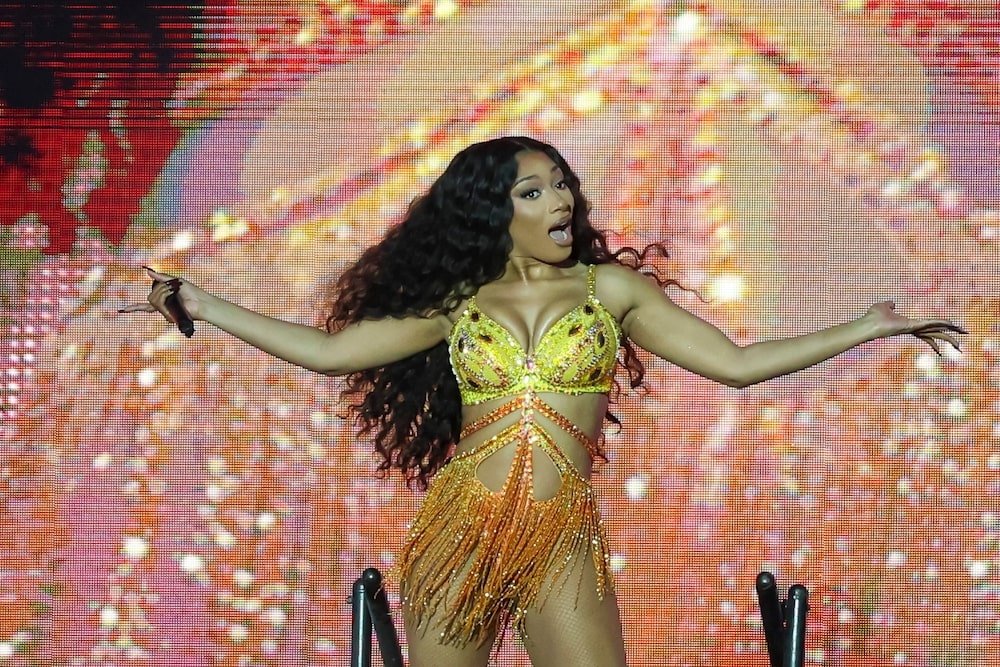Kamala Harris vs. Donald Trump: The Pop Culture Campaign Battle
Ten thousand people filled the Georgia State Convocation Center for Kamala Harris’s first major rally as the Democratic presidential nominee. Rappers Quavo and Megan Thee Stallion were there to support her and perform for the crowd.
Four days later, Donald Trump held a rally at the same venue, with about the same size crowd. He opened his speech by fuming, falsely, that there were lots of empty seats at the Harris rally, and the only reason most people attended was to hear the entertainers.
It wasn’t just the size of Harris’s crowd that ate at Trump. For the first time in his political career, he is being successfully challenged for the Pop Culture vote.
Harris's Star-Studded Rally
Not familiar with Megan Thee Stallion? Her filmed dance to her viral hit “Mamushi” drew 17 million views on Instagram in less than 24 hours. Why should Trump care? Her Instagram had the hashtag #hottiesforharris. For tens of millions of Americans, Megan Thee Stallion is “hot.”
Long before Donald Trump descended the escalator in 2015 and announced his candidacy for president, he made it his mission to be in the pop culture spotlight, trading gossip for favorable coverage.
When his child Tiffany was born, Trump even invited a gossip columnist into the hospital room over his wife’s objections.
Trump's Pop Culture Legacy
Trump’s relationship with the scandal-mongering National Inquirer is well-documented. Less widely known is the long-time symbiotic relationship between Trump and all manner of other gossip and celebrity publications and web sites with cumulative audiences much larger than the better-known mainstream media.
That, and the many years that he starred in the TV show, The Apprentice, helps explain the breadth of Trump’s current support base, beyond the religious right and economically disaffected.
But in Kamala Harris, on the pop culture campaign front, he may have met his match.
The Power of Pop Culture in Politics
Reporter Noah Shachtman, in his Vanity Fair article Kamala Harris's Pop Crave, has a real eye-opener on this.
Shachtman is quite familiar with the pop culture scene. He also writes for Rolling Stone, Wired, and other publications that follow celebrities. He says the power of pop culture is its “legions of motivated fans bending politics through sheer devotion, an echo of what they’ve done to the pop charts and the live music industry.”
Pop Crave, Pop Base, Buzzing Pop, Shade Room, Hollywood Unlocked, Bossip—are you familiar with any of these websites? Collectively, they have millions of followers, few of whom likely read the New York Times or binge on Fox News.
Reporter Noah Shactman says Pop Base shared Kamala Harris’s first campaign ad on Twitter, and it quickly drew more than 5 million views. Pop Crave posted an old video of Harris authorizing gay marriage as California’s attorney general and nearly 7 million people watched it.
They call it “pop culture” because it captures what, for the most part, evolves organically, and when that wave starts to grow it’s difficult to uncurl. Harris seems to have unleashed a big one.
Trump’s obsession with the size of Kamala Harris’s crowd in Atlanta and the rappers who entertained there wasn’t just a reflection of the number of seats she filled. It was the message she sent.
For pop culture fans, Harris is a shiny new celebrity. Trump may be yesterday’s news.
Comments? Criticism? Contact Joe Rothstein at jrothstein@rothstein.net



What happens when a fun-loving, charismatic, reform-minded Mexican-American billionairess becomes president of the United States and strikes fear in the pocketbooks of a cabal of the rich and powerful?